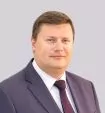Igor Artemiev, head of FAS (Federal Antimonopoly Service) gave a briefing on "Current practice and further plans of FAS " which took place on March 6, 2017 in the office of Association of European Business (AEB). The briefing was attended by the association members and representatives of mass media.
In the course of this meeting, the parties discussed a broad spectrum of topics related to antitrust regulation in various spheres of national economy. The major part of this event was dedicated to the issues of antitrust regulations in the field of pharmaceuticals and state procurement of medicines.
Specifically, Igor Artemiev stated that FAS frowns upon a so-called "odd man out" rule applied in state procurement of medicinal drugs and products. According to this rule, if there are at least two or more offers for supplying medicinal drugs produced in the Eurasian Economic Union in the tender procedure, the foreign suppliers are not allowed to participate. According to the speaker, this rule seriously restrains competition and may lead to the situation where one can manipulate with the prices: there have been precedents where a foreign company offering very good prices was not allowed to participate on the basis of that rule and the prices offered by the company that won the tender were much higher. The Head of FAS said that the most reasonable alternative to this rule would be some kind of preferences given to the national participants upon evaluating their price offers.
Valery Narezhniy, counsel of Gorodissky & Partners, who attended the briefing, raised a question meaningful for foreign pharmaceutical companies that work in Russia. It is known that in the recent years an idea of implementing a compulsory licensing procedure, primarily in the field of medicinal drugs, has been widely discussed in Russia. In this regard, he asked the Head of FAS what is the FAS' attitude regarding this issue and what are the chances that the relevant law will be adopted in the near future, and also how exactly they plan to enforce the IP holders' rights in case compulsory licensing is implemented. It should be noted however that generally accepted compulsory licensing provision already exist in the Russian law. Igor Artemiev explained that the Russian Government currently considers a draft law that suggests including in Article 1350 of the Civil Code of the Russian Federation the right of the Government to allow the use of an invention, utility model, or design without the rightholders consent if it is required to protect people's lives and health. Currently the law allows the Government to do that only if it is required for the purposes of the national security and defense. The draft law is expected to pass to the State Duma any time soon. The content of this draft law is based on the Agreement on Trade Related Aspects of Intellectual Property Rights' provisions according to which said procedure shall be applied in emergencies where a situation of "critical necessity" or "healthcare crisis" exists if and only all other measures or ways to mitigate the negative consequences of said situations are exhausted. Anyway, both, current legislation and the draft law provide that the right holder shall be immediately notified about the relevant decision and shall be entitled to obtain a fair compensation.
It seems that the FAS of Russia moved away from the idea to change the compulsory license procedure radically, and it shall promote further development of the pharmaceutical products developers' and manufacturers' intellectual property rights protection system.
The content of this article is intended to provide a general guide to the subject matter. Specialist advice should be sought about your specific circumstances.

